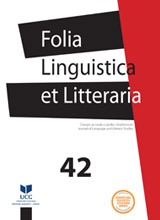Lessons Learned on Academic Integrity in E-Teaching and E-Learning during the Coronavirus Crisis
Lessons Learned on Academic Integrity in E-Teaching and E-Learning during the Coronavirus Crisis
Author(s): Vlatka Ivić, Blaženka ŠoštarićSubject(s): Social Sciences, Language studies, Language and Literature Studies, Education, Foreign languages learning, Higher Education
Published by: Filološki fakultet, Nikšić
Keywords: academic integrity; e-cheating; ethics; online teaching; higher education
Summary/Abstract: The intensive development of information and communication technologies has introduced significant changes in teaching over recent decades and has shifted the focus of teaching methodology in higher education towards e-learning and e-teaching. The transition to online teaching was accelerated by the coronavirus crisis in 2020. During the various lockdowns, most teachers were forced to swiftly transfer their activities online and had to deal with the issue of the online evaluation of students’ work to be able to successfully complete the academic year. One of the biggest challenges for teachers seems to have been the prevention of e-cheating. This appears to have resulted in much higher, unrealistic grades for some students, whereas those who do not e-cheat fall unfairly behind. The aim of this paper is to analyse the achievements of students at the Faculty of Humanities and Social Sciences in Osijek in the courses of Contemporary English Language 1, 2, 3 and 4 in the academic years 2018/2019, 2019/2020 and 2020/2021, by comparing the achievements of the same students in the classroom environment in the winter semester and in the online environment in the summer semester. The students’ achievements will be additionally compared with the previous academic years in order to establish whether there is a significant difference in the students’ achievement working on the same task forms in the off-line and online environment. The overall objective is to explore the possibilities and problems of applying different task forms for the e-teaching of both general English and English for Academic Purposes in higher education, in order to ensure the most objective, realistic and fair results at the end of the courses and to raise the students’ awareness of the importance of academic and professional integrity.
Journal: Folia Linguistica et Litteraria
- Issue Year: 2022
- Issue No: 42
- Page Range: 95-110
- Page Count: 16
- Language: English

